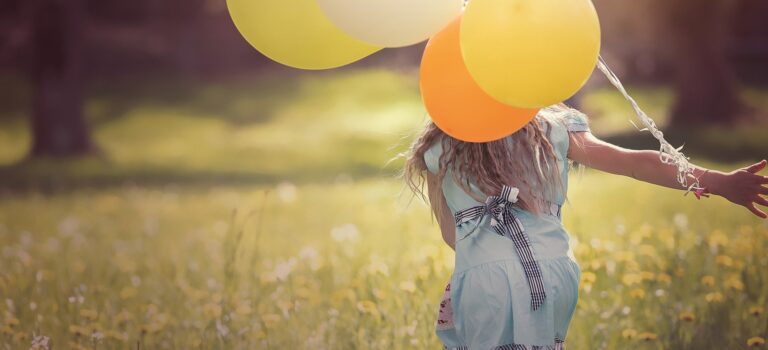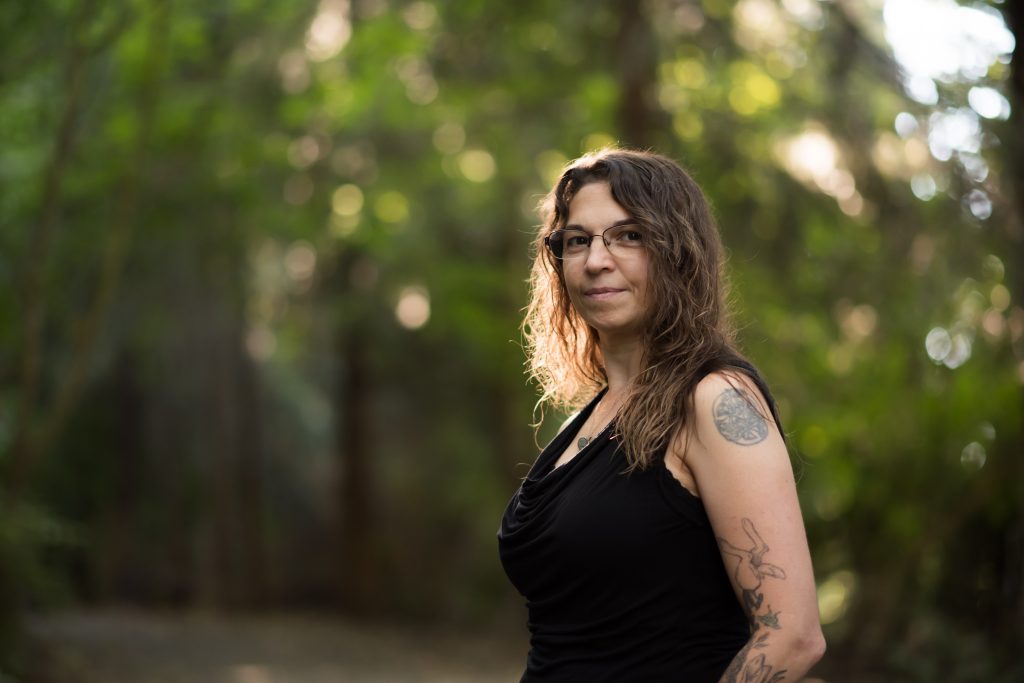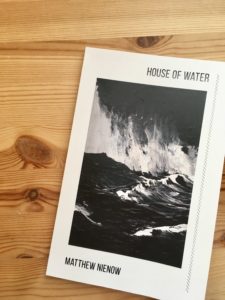
I wasn’t ready for delight when Ross Gay’s The Book of Delights came out in February 2019. It may seem surprising then (if unpopular) that on the anniversary of the end of life as we knew it—March 2021—I felt mostly gratitude. And delight.
When Delights was published, I was descending into burnout, though I didn’t know it. My symptoms—anxiety, irritability, migraines, insomnia, memory loss, exhaustion, inability to focus, hopelessness, crying randomly—didn’t seem indicative of anything beyond aging or my own bodily weakness. Wasn’t everyone stressed out, overworked, and glued to their phones? Didn’t everyone feel looming dread on Sunday afternoons?
One morning on the train to work, an ache spread across my chest. It was like someone tightened a belt around my lungs—I couldn’t breathe. My heart pounded like I was running though I was just sitting there, cringing at the day ahead. After a few hours, the feeling subsided into tingly coolness. My doctor ran a bunch of tests, but she couldn’t find anything wrong. I believed the problem was me—my inability to handle the grind. My husband, Michael, urged me to take a break from what had always been a stressful job. He had a heart attack at my age and didn’t want the same to happen to me.
“I don’t know if I can afford to leave,” I said.
“I don’t know if you can’t.”
That winter, I was forced to agree when the panic attacks and tachycardia recurred with increasing frequency. Nearly a year to the day after Delights was published, I quit my job with nothing lined up—I simply couldn’t work anymore. I told colleagues that 2020 was my gap year. I’d rest and reconnect with Michael, then I’d edit my novel and rethink my relationship to work. Some congratulated me for prioritizing my mental and physical health and my marriage. Others cocked their heads. I was giving up a well-paying job with benefits and a lofty title at a prestigious firm others would “kill” to work for. Quitting indicated I was weak. I’d lost my edge. My career, meaning my life, was over at forty-five.
Secretly, I feared they were right.
What if I was washed up? Had I made a huge mistake?
Of course, I couldn’t imagine we were headed for a global pandemic. Nor could I foresee that, two days before my last at work, we would discover Michael needed a five-way bypass and a new aortic valve. For us, quarantine began on March 1, 2020, to keep Michael healthy for open-heart surgery, scheduled for March 12—the day the hospital closed to visitors.
That afternoon, while Michael recovered in ICU, his surgeon noted copious fluids draining from his chest. It seemed Michael was bleeding internally. They’d have to open him up again. That evening, I spent five awful hours reckoning with the possibility of his death just when life was supposed to get better. When the call came after nine p.m.—Michael survived—I couldn’t believe the news. For me, March 12, 2021, wasn’t the anniversary of losing everything.
It was the anniversary of keeping it.
When Michael went back to work from home last May, I dared to relax. Strangely, quarantine felt like the safest place to be. I wasn’t ready to edit my novel yet, so I asked poet Arianne True for reading recommendations.
“When anyone asks, I always say, Ross Gay,” she said. “No matter what. If you’re happy, read Ross Gay; if you’re sad, same thing.”
I ordered The Book of Delights hoping it wasn’t Pollyanna philosophy or “magical” thinking. It was, in fact, the opposite. In one hundred and two essays, Gay expanded the notion of delight by layering observations of nature, music, and people with reflections on racism, death, and loss. In Gay’s hands, delight wasn’t the opposite of pain: it was inherently interwoven with it. His gaze deepened my understanding of delight as “a human madness,” echoing Zadie Smith’s essay on Joy.
Amidst the gloom of 2020, Ross (note: Gay becomes Ross here) led me to unexpected light-filled places. His delectable asides, his poetic language—Assonance! Consonance! Alliteration!—his sprinkling of profanity, flirtatiousness, frankness—Ross the Boss the King of Applesauce—oh, his tender heart! His emotional intelligence! His ability to write urine and hand job and not be gross! Hey look—Ross and I are the same age! (I’m a month older.) I peered shyly into his eyes via Zoom during a Vermont Studio Center reading of his new book-length poem, Be Holding, feeling faint with fandom.
His observations also helped me examine my own stalled writing.
After finishing Delights, I reread the essays I wrote in 2019 to discover they were miserable. Naturally, they had all been rejected. I started new work, this time scribbling Where’s the delight? on drafts until I found it: often, a single golden thread buried deep. I found that even small glimmers of delight leant range to my work. Acceptances began to arrive. This practice and application of delight—both observing and reflecting on it—was life-changing.
Then came my “brilliant” idea: I’d turn Ross’s process of observing a delight a day into a guide for rediscovering delight in one’s writing. I proposed a generative course with his book as a companion text to Hugo House, a creative writing center in Seattle where I live.
My grand aspirations were dashed in the first fifteen minutes of class.
I was expecting to attract writers closer to my skill level looking for inspiration. One was writing-curious; three journaled a little; two said they wrote stories; one wrote poems. None self-identified as writers. Uh-oh. They signed up because they were sad, they said; they hoped my class might make them feel happier.
My guts made a squelch I hoped wasn’t audible on Zoom.
This wasn’t going to be a crackling discussion where I could rely on my students to dog-pile insights. These people were looking to me—a person clawing out of her own black hole—to help them find actual delight.
I shifted my lesson plans and looked for ways to meet my students where they were. We listened to podcasts of Ross (delight) and I compiled a delight mixtape of their favorite songs. The problem was, I wasn’t prepared to lead a class of students who didn’t want to talk. They were too shy to share more than a few words, even in the chat. The only time my students spoke in sentences was when we took turns reading sections of the book aloud. Everyone agreed Ross’s voice was medicine. He buoyed us. His words were the sun, and we followed them.
I kept asking my students to share their work, but they stonewalled me. I tried to be patient, knowing we were approaching the one-year anniversary of lockdown. The few observations they did share were touching and insightful; I wanted them to take a risk and find something good from it. That was a lot to ask.
The week I said we’d start class by everyone reading a paragraph of their writing, two students dropped out and never returned. Only one dared to share because I asked her to. (She sent me a draft over the weekend. It was fantastic.) The rest were silent.
Why did I think I could teach this class?
What did I know about delight, anyway?
In the ensuing weeks, a familiar sense of dread arose, this time on Saturday mornings before class. I wallowed in glumness until the camera light turned green, then I slapped on a smile. I stopped asking my students to share their work. Instead, we did “delight swaps” in the chat. There was always a stand-out beyond the regular appearances of birds, cats, and flowers, like the mail carrier singing a cappella as she walked down the empty street. Mainly, we read Ross’s essays and we wrote and wrote and wrote.
“I’m a bad teacher,” I sighed after class, face in hands.
“You must be giving them something,” Michael said. “Five keep showing up.”
It felt brutal, though, to pose questions and sit in silence. Sometimes, it was a struggle to get them to read. I gritted my teeth during the long pauses, having learned that if I held back, someone would eventually speak. Along the way I received a couple of notes—Thanks for the inspiring class!—but it didn’t feel inspiring to me. My delight experiment was a failure. Not only the class, but what it represented: my new life, a thing I could point to when former colleagues asked what I was doing with my “free” time.
We began the last session by looking back at the first during which we had drafted a collective definition of delight. My students had been nervous about being pinned down to words, but I assured them our definition could change and grow. After we made a starting list, I pasted Merriam-Webster’s version into the chat. Everyone agreed it was flat in comparison. Ours was messy, but it had depth.
That moment was the glimmering thread I had clung to for six weeks.
At the end of the final class, I asked my students to write—one last time—their personal definitions of delight. I asked them to paste a sentence or two in the chat, and I waited until each had a turn. It took less than five minutes and more than two of silence for them to share what they wrote. After the Zoom boxes went dark, I sat alone in cyberspace rereading their lines.
Tears sprung to my eyes. In our six weeks together, something in them had changed.
My students hadn’t only redefined delight, they had made a collaborative poem, line by line. I thought I’d failed them and myself, but their definitions were alive with vulnerability and nuance. Hope. Fear. Risk. Delight.
As it happened, choreographing twelve hours of prompts also forced me to probe how delight lived (or didn’t) in my life. The class was over; my practice had only begun.
Delight is not “nice to have” nor is it a luxury. It’s not all sunshine and unicorns. It’s a portal into the gloriously labyrinthine human experience that’s right in front of us, inside us, every day—one we turn away from because delight isn’t easy. Instead, we swipe, we like, we click purchase, we dumb things down into zeroes and ones until we, ourselves, become algorithms that other algorithms measure. A practice of delight requires attention that we’re breeding out of ourselves, and I don’t want to go back inside the Matrix.
On this anniversary of the time everything changed, I, too, recommend reading Ross Gay whether you’re happy or sad. His work can help you grapple with the incongruity: joy, happiness, pleasure—yes, and—heartbreak, pain, suffering. Sadness is not a sign you’ve failed, nor is happiness its opposite or even the point. You’ll learn how pain holds hands with delight, how they enrich each other. You’ll learn that practicing delight doesn’t mean shutting your eyes to darkness but opening them to unavoidable loss.
Delight is the confounding truth that humans become more complete by asking questions, by pondering. Delight is having nowhere to go except inside existential discomfort; it’s curiosity of the unpleasant and the unknown. As Mary Ruefle says in her essay On Fear, I’d rather wonder than know, and I do keep wondering: about fear, about death, about the marvelous intricacies of nature whose designs we grapple to understand and whose complexity we mimic bluntly—or destroy, despite what we know.
Delight isn’t binaries or absolutes; it’s depth, scale, range.
A year after quitting my job, my life isn’t free from worry or suffering, nor was quitting an end: it was a volta. If we’re counting, I spend as many hours writing, editing, and teaching as I did at my corporate job, but I feel different. My panic attacks have subsided, though my heart feels permanently changed. I mostly sleep through the night. I can remember things again. The mental fog is lifting. My sense of delight doesn’t arise from not working, but from working with meaningful questions and helping others explore theirs. What does it mean to be human? To be embodied and part of this earth in an inequitable society that prizes individualism, detachment, and distraction? How dare we love anything in a world where everything dies? How do we contemplate mortality beyond misery? Ross taught me it’s never delight or pain, but both, a negative capability—a human madness. For what could be more infuriating than our capacity to be grateful and desirous of more, always more?
Since my mother’s death in my teens, I’ve run from delight. Better to deny myself even small joys than face their inevitable loss. Better to lean in, to achieve, to climb—meet goals, make to-do lists, buy things. I was afraid to feel pleasure, thinking happiness was a lightning rod for catastrophe. Better to keep my eyes down, work hard, earn money; I believed my job would somehow save me. That’s how my capitalist burnout took hold, strangling me as it used my body to propagate itself, like the face-hugger xenomorph in Aliens, a movie I find unsettlingly delightful. Which is to say, The Book of Delights showed me how delight is a technology of rebellion against despair and denial. Sitting, if uncomfortably, in silence asking seemingly unanswerable questions does indeed yield insights. Asking doesn’t solve, it illuminates.
From Ross I learned to turn and face delight. Nothing can prevent Michael’s death or my own, but I can pour my attention into the imperfect time we share—a window of highs and lows whose duration is uncertain, whose quality carries no assurances—before it’s gone.
A study of mortality can be a study of aliveness, if you let it.
That, I realize, is my life’s work.


 For the past few months I’ve been unmoored, I feel against everything. I think a lot of us do. During this time I’ve turned, as I always have in difficult times, to books. I’ve found myself drawn to two types of books, both of which seem relevant and necessary. The first kind are those that teach me to see through the eyes of others, show me the history of how we got here, give voice to the often unheard, teach me to resist, give me strength to fight back. The second type of book I’ve been drawn to are those which praise the physical world, look with wonder at the earth and its inhabitants, draw the eye to the light. The books of the first kind have been my maps and guides. The second kind of book has been an anchor for me. In these times of upheaval and uncertainty I am seeking things that ground me to the world, that re-invest me in this place. I want to hold something in my hands, to know that it is real, to remember I’m not against everything. The poems in Matthew Nienow’s
For the past few months I’ve been unmoored, I feel against everything. I think a lot of us do. During this time I’ve turned, as I always have in difficult times, to books. I’ve found myself drawn to two types of books, both of which seem relevant and necessary. The first kind are those that teach me to see through the eyes of others, show me the history of how we got here, give voice to the often unheard, teach me to resist, give me strength to fight back. The second type of book I’ve been drawn to are those which praise the physical world, look with wonder at the earth and its inhabitants, draw the eye to the light. The books of the first kind have been my maps and guides. The second kind of book has been an anchor for me. In these times of upheaval and uncertainty I am seeking things that ground me to the world, that re-invest me in this place. I want to hold something in my hands, to know that it is real, to remember I’m not against everything. The poems in Matthew Nienow’s